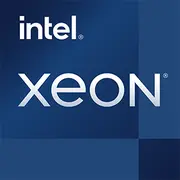Intel Xeon E5-2680

The Intel Xeon E5-2680 processor is a powerful and efficient CPU designed for server applications. With a total of 8 cores and 16 threads, this processor is capable of handling highly demanding workloads with ease. The base frequency of 2.7 GHz provides reliable performance for everyday tasks, while the max turbo frequency of 3.5 GHz ensures that the processor can handle more intensive workloads when needed.
The 20MB of L3 cache and a TDP of 130W further enhance the performance and efficiency of this processor, making it an ideal choice for server environments that require reliable and consistent performance.
Benchmark tests show that the Intel Xeon E5-2680 performs exceptionally well, with a Geekbench 6 Single Core score of 947 and a Multi Core score of 5316. These results further highlight the processor's capabilities and its ability to handle multitasking and multi-threaded applications with ease.
Overall, the Intel Xeon E5-2680 processor is a solid choice for server applications, offering a good balance of performance, efficiency, and reliability. With its impressive capabilities, this processor is sure to meet the needs of even the most demanding server workloads.
Basic
Label Name
Intel
Platform
Server
Launch Date
March 2012
Model Name
?
The Intel processor number is just one of several factors - along with processor brand, system configurations, and system-level benchmarks - to be considered when choosing the right processor for your computing needs.
Xeon E5-2680
Code Name
Sandy Bridge-EP
Foundry
Intel
Generation
Xeon E5 (Sandy Bridge-EP)
CPU Specifications
Total Cores
?
Cores is a hardware term that describes the number of independent central processing units in a single computing component (die or chip).
8
Total Threads
?
Where applicable, Intel® Hyper-Threading Technology is only available on Performance-cores.
16
Performance-core Base Frequency
2.7 GHz
Performance-core Max Turbo Frequency
?
Maximum P-core turbo frequency derived from Intel® Turbo Boost Technology.
3.5 GHz
L1 Cache
64K per core
L2 Cache
256K per core
L3 Cache
20MB shared
Unlocked Multiplier
No
Multiplier
27.0
Bus Frequency
100MHz
CPU Socket
?
The socket is the component that provides the mechanical and electrical connections between the processor and motherboard.
Intel Socket 2011
Technology
?
Lithography refers to the semiconductor technology used to manufacture an integrated circuit, and is reported in nanometer (nm), indicative of the size of features built on the semiconductor.
32 nm
TDP
130 W
PCIe Version
?
PCI Express is a high-speed serial computer expansion bus standard used for connecting high-speed components, replacing older standards such as AGP, PCI, and PCI-X. It has gone through multiple revisions and improvements since its initial release. PCIe 1.0 was first introduced in 2002, and in order to meet the growing demand for higher bandwidth, subsequent versions have been released over time.
3
Transistor Count
2.27 billions
Memory Specifications
Memory Type
?
Intel® processors come in four different types: Single Channel, Dual Channel, Triple Channel, and Flex Mode. Maximum supported memory speed may be lower when populating multiple DIMMs per channel on products that support multiple memory channels.
DDR3
Memory Channels
?
The number of memory channels refers to the bandwidth operation for real world application.
4
ECC Memory Support
Yes
GPU Specifications
Integrated Graphics Model
?
An integrated GPU refers to the graphics core that is integrated into the CPU processor. Leveraging the processor's powerful computational capabilities and intelligent power efficiency management, it delivers outstanding graphics performance and a smooth application experience at a lower power consumption.
N/A
Benchmarks
Geekbench 6
Single Core
Score
947
Geekbench 6
Multi Core
Score
5316
Geekbench 5
Single Core
Score
629
Geekbench 5
Multi Core
Score
5633
Passmark CPU
Single Core
Score
1948
Passmark CPU
Multi Core
Score
17951
Compared to Other CPU
Geekbench 6 Single Core
Geekbench 6 Multi Core
Geekbench 5 Single Core
Geekbench 5 Multi Core
Passmark CPU Single Core
Passmark CPU Multi Core
Share in social media
Or Link To Us
<a href="https://cputronic.com/en/cpu/intel-xeon-e5-2680" target="_blank">Intel Xeon E5-2680</a>